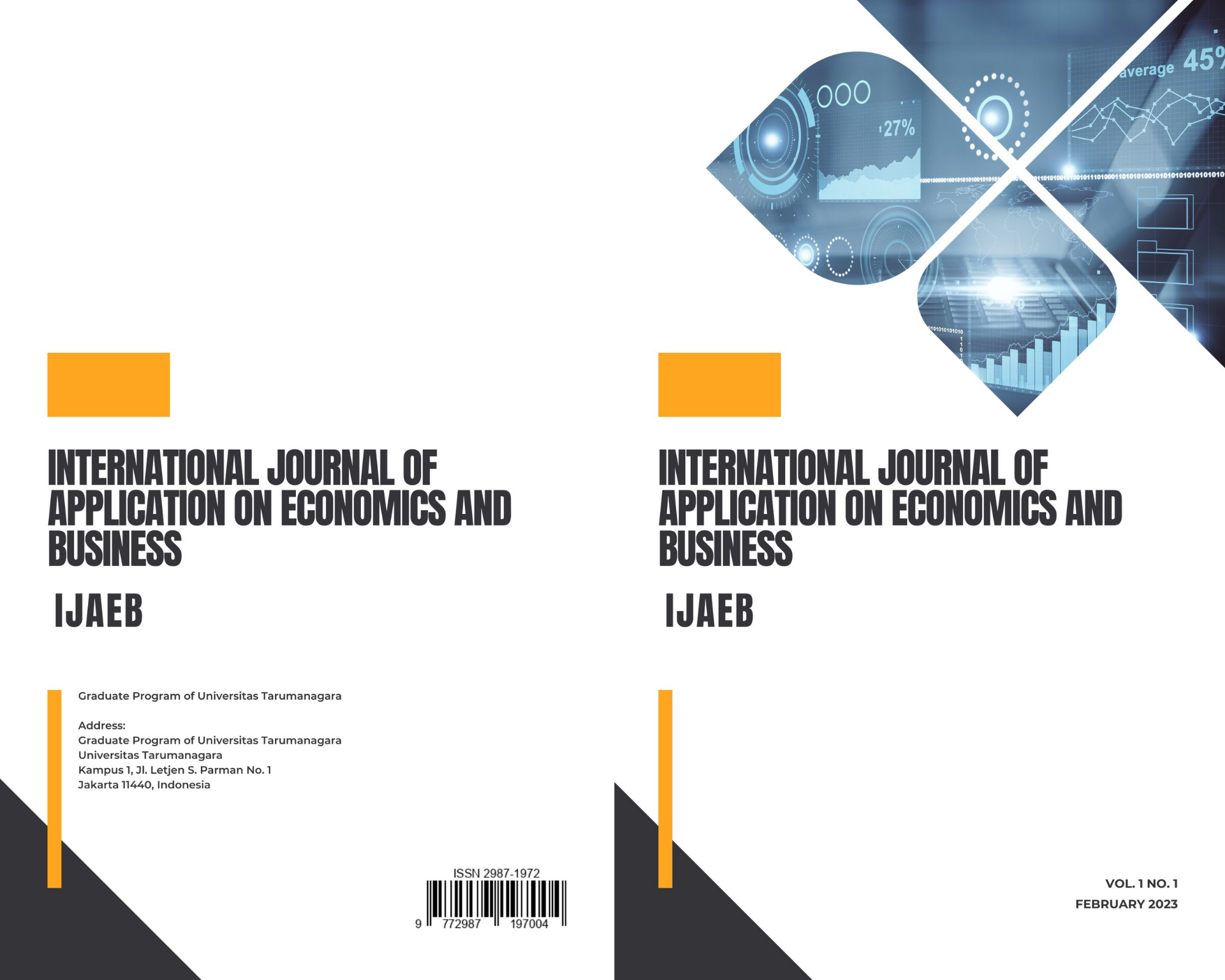The Role of Social Media Usage on Entrepreneurship Orientation and MSME’s Performance
Main Article Content
Abstract
The purpose of this study was to determine whether there is an influence of entrepreneurship orientation on the performance of MSMEs in Jakarta mediated using social media. The non-probability sampling technique is used in the sample selection process. The sampling technique uses purposive sampling and snowball sampling methods. In this study, data was collected by distributing online questionnaires in the form of a google form so that as many as 101 respondents were obtained from MSME in Jakarta. Data were processed using PLS-SEM method. Based on the findings of this research, entrepreneurship orientation has no significant effect on MSME business performance in Jakarta; however, using social media can fully mediate the significant effect of entrepreneurship orientation on MSME’s performance in Jakarta.
Article Details
Section

This work is licensed under a Creative Commons Attribution-NonCommercial-ShareAlike 4.0 International License.
This journal provides immediate open access to its content on the principle that making research freely available to the public supports a greater global exchange of knowledge.
IJAEB by Graduate Program of Universitas Tarumanagara is licensed under a Creative Commons Attribution-NonCommercial-ShareAlike 4.0 International License.. Permissions beyond the scope of this license may be available at https://journal.untar.ac.id/index.php/ijaeb
References
Sasongko, D. (2020, August 24). Artikel DJKN: UMKM Bangkit, Ekonomi Indonesia Terungkit [Online]. Available: https://www.djkn.kemenkeu.go.id/artikel/baca/13317/UMKM-Bangkit-Ekonomi-Indonesia-Terungkit.html
Candra, R., & Soelaiman, L. (2022). The Effects of Strategic Competence, Ethical Competence, Entrepreneurial Orientation, and Network Competence on Culinary-Business Growth in Belitung Island. Proceedings Tenth International Conference on Entrepreneurship and Business Management 2021 (ICEBM 2021), pp. 394-399.
Moullin, M. “Performance measurement definitions: Linking performance measurement and organisational excellence”. International Journal of Health Care Quality Assurance, vol. 20, no. 3, pp. 181–183. 2007.
Suci, Y. R. “Perkembangan UMKM (Usaha Mikro Kecil dan Menengah) di Indonesia”. Jurnal Ilmiah Cano Ekonomos, vol. 6, no. 1, pp. 51-58. 2017.
Maria, N.S.B., and Widayati, T. “Dampak Perkembangan Ekonomi Digital terhadap Perilaku Pengguna Media Sosial dalam Melakukan Transaksi Ekonomi”. Jurnal Konsep Bisnis Dan Manajemen, vol. 6, pp. 234–239. 2020.
Barney, J.B. “Resource-based theories of competitive advantage: A ten-year retrospective on the resource-based view”. Journal of Management, vol. 27, pp. 643–650. 2001.
Soelaiman, L., and Utami, A.R. “Faktor-faktor yang Mempengaruhi Adopsi Media Sosial Instagram dan Dampaknya Terhadap Kinerja UMKM”. Jurnal Muara Ilmu Ekonomi Dan Bisnis, vol. 5, pp. 124. 2021.
Hsu, Y.L. “Facebook as international eMarketing strategy of Taiwan hotels”. International Journal of Hospitality Management, vol. 31, pp. 972–980. 2012.
Green, K.M., Covin, J.G., and Slevin, D.P. “Exploring the relationship between strategic reactiveness and entrepreneurial orientation: The role of structure-style fit”. Journal of Business Venturing, vol. 23, pp. 356–383. 2008.
Kumalaningrum, M.P. “Lingkungan Bisnis, Orientasi Kewirausahaan, Orientasi Pasar, dan Kinerja Usaha Mikro, Kecil dan Menengah”. Jurnal Riset Manajemen Dan Bisnis, vol. 7, pp. 45. 2012.
Lumpkin, G.T., and Dess, G.G. “Clarifying the entrepreneurial orientation construct and linking it to performance”. Academy of Management Review. Vol. 21 No. 1, pp. 135–172. 1996.
Pramesti, N.M.V., and Giantari, I.G.A.K. “Peran Orientasi Pasar Memediasi Pengaruh Orientasi Kewirausahaan terhadap Kinerja UKM Industri Kerajinan Endek”. Journal of Marketing, vol. 54, pp. 20–35. 2016.
Covin, J.G., and Wales, W.J. “The Measurement of Entrepreneurial Orientation”. Entrepreneurship: Theory and Practice, vol. 36, pp. 677–702. 2012.
Ratten, V. “COVID-19 and entrepreneurship: future research directions”. Strategic Change, Vol.30, No.2, pp.91-98. 2021.
Chandra, Y., Styles, C., and Wilkinson, I. “The recognition of first time international entrepreneurial opportunities: Evidence from firms in knowledge-based industries”. International Marketing Review, vol. 26, pp. 30–61. 2009.
Bughin, J., Byers, A.H., and Chui, M., How social technologies are extending the organization. 5th ed. New York: McKinsey Quarterly, 2011, vol. 20, pp. 1–10.
Michaelidou, N., Siamagka, N.T., and Christodoulides, G. “Usage, barriers and measurement of social media marketing: An exploratory investigation of small and medium B2B brands”. Industrial Marketing Management, vol. 40, pp. 1153–1159. 2011.
Odoom, R., Anning-Dorson, T., and Acheampong, G. “Antecedents of social media usage and performance benefits in small- and medium-sized enterprises (SMEs)”. Journal of Enterprise Information Management, vol. 30, pp. 383–399. 2017.
Sigala, M. and Chalkiti, K., “Knowledge management and web 2.0: preliminary findings from the Greek tourism industry”, in Social Media in Travel, Tourism and Hospitality. 1st ed. New York: Theory, Practice and Cases, Ashgate Publishing, 2012, pp. 20.
Sekaran, U., & Bougie, R., Research Methods for Business: A Skill-Building Approach. 4th ed. United Kingdom: John Wiley & Sons. 2016.
Malhotra, N. K., Essentials of marketing research: a hands-on orientation. 1st ed. New Jersey: Pearson Education. 2015.
Kalnadi, D. “Pengukuran Penerimaan dan Penggunaan Teknologi pada UMKM dengan Menggunakan Metode UTAUT”. Universitas Lampung. Jurusan Adm. Bisnis. 2013.

